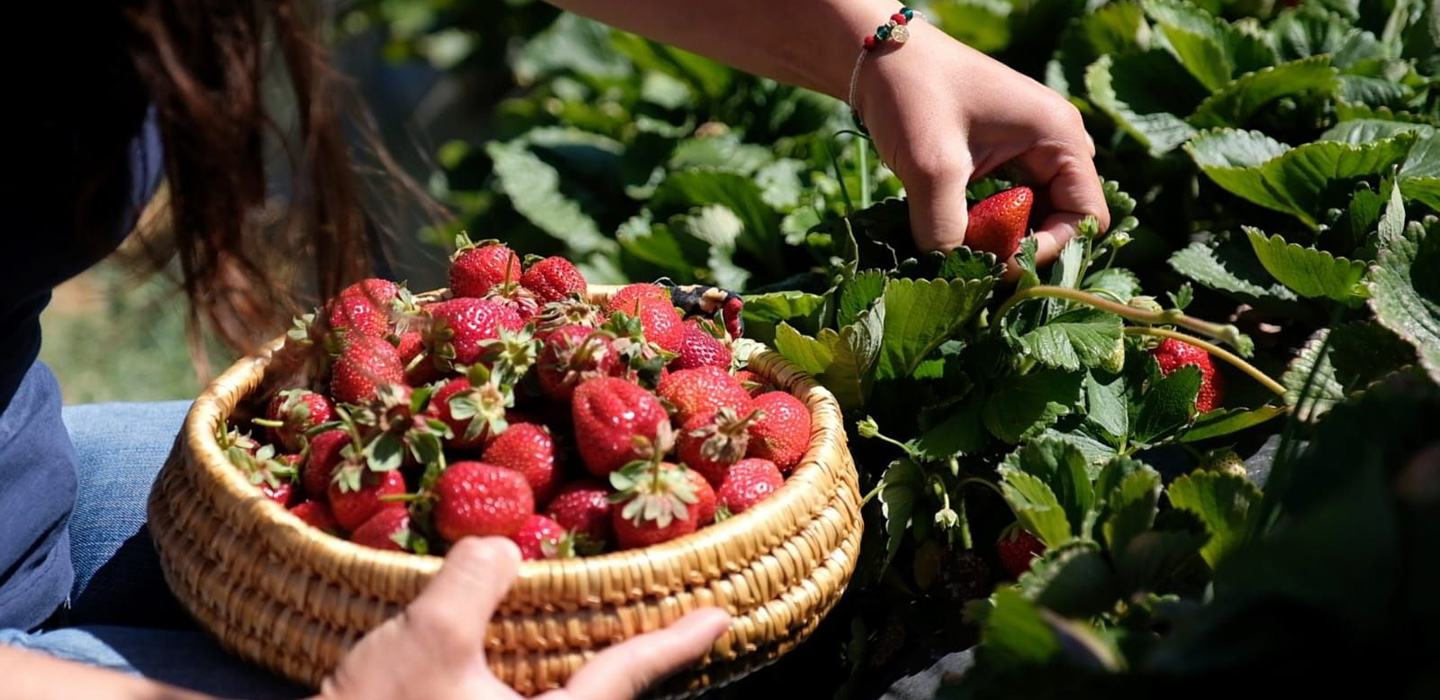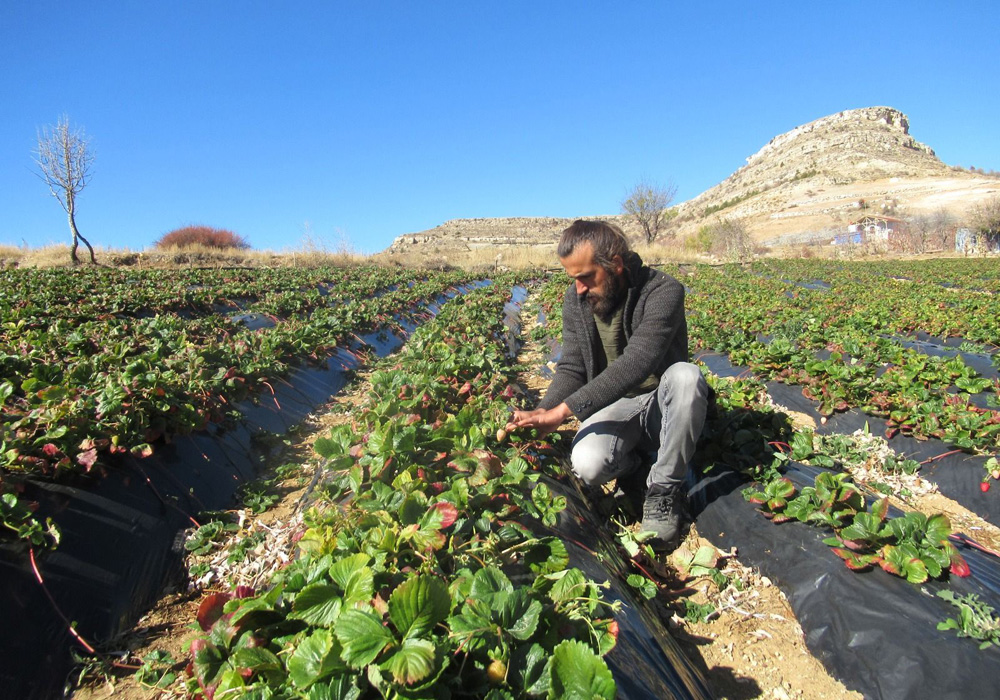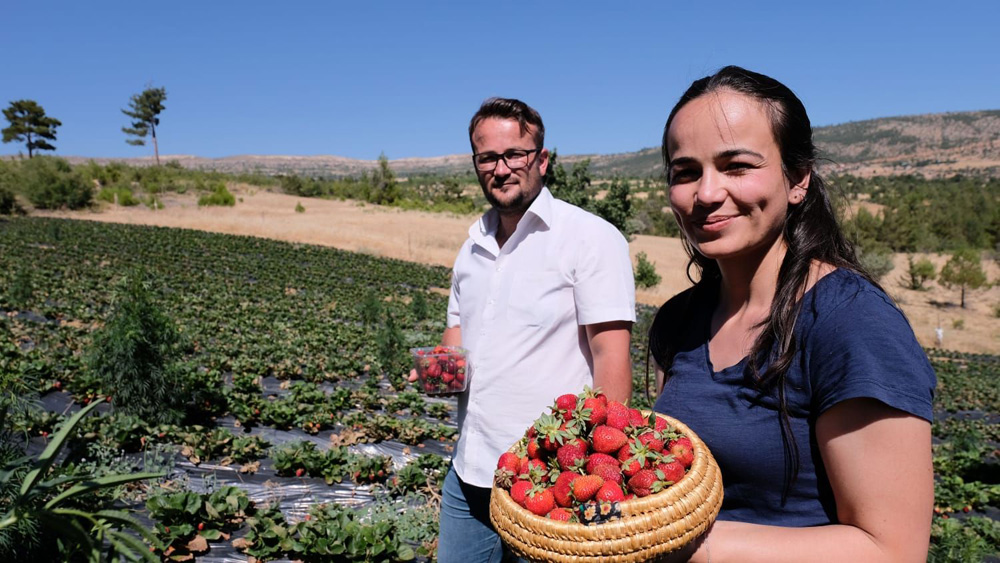In Turkey, strawberry farms bring opportunities for rural youth
IFAD Asset Request Portlet
ناشر الأصول
في تركيا ، توفر مزارع الفراولة فرصًا لشباب الريف
المقدر للقراءة دقيقة 5
In the district of Sarıveliler, high in the Taurus Mountains of Turkey, the winters are long and the weather is harsh. Agriculture is the mainstay of this region, but the geographical conditions and the small, fragmented patterns of land ownership make it difficult to earn a decent livelihood. Many who start their lives there end up leaving – especially the region’s youth, who are encouraged by their families to find better economic opportunities elsewhere.
Şaban Bayındır is one of those who left. “I went to Istanbul to earn money,” he says. “This is a rural area, the land holdings are small for agriculture, and work opportunities are limited. Young people are either employed as seasonal workers, or they go to Istanbul.”
When the COVID-19 pandemic hit in 2020, many young people lost their jobs in the cities. Like so many others, the youth from Sarıveliler returned home, wondering how they would earn a living – but, to their surprise and joy, they found new opportunities there.
 |
| Şaban works in his strawberry fields. |
Most of the region’s farmers were used to growing tomatoes and cucumbers in small greenhouses, for sale in nearby towns. But starting in 2018, strawberries became available, thanks to support from the IFAD-funded GTWDP project. They’ve quickly proven themselves to be an ideal crop for the region’s sloping hillsides – and a reliable source of income.
With their rich flavour and aroma and easy availability, the highland strawberries of Sarıveliler are now widely sought after in Alanya, a thriving tourist town on the Mediterranean Sea. And as the popularity of highland strawberries grows, many other local businesses in the district are growing along with it – especially those that sell agricultural inputs or are otherwise involved in the value chain. Traders and middlemen from Alanya, for example, have set up an office in Sarıveliler so they can buy directly from farmers.
Meanwhile, farmers’ earnings are improving rapidly. Until recently, farmers made about US$2,000 in profit from every 0.1 hectare of field. But over the past year, their profits have more than doubled, to US$4,700–6,000 for the same land area.
 |
| Büşra and Mustafa harvest strawberries. |
As word travels, more and more of the region’s youth have begun to return to their ancestral lands.
Büşra and Mustafa Demirel, a sister and brother who were born and raised in Sarıveliler, had left the region to study – but after hearing about the new opportunities, they decided to return upon finishing their graduate programmes. Having received a grant of 0.3 hectares of land from the District Directorate of Agriculture and Forestry, they set up their field and are now growing strawberries.
Many of their elders were sceptical at first, but the siblings were determined to make their business a success. “The soil no longer bears well using traditional methods, so young people have introduced innovative methods,” Büşra explains.
Indeed, enterprising young people are bringing a new dynamism to local ways of doing things. They are curious and ready to try new things; they read, they watch videos, they learn about new initiatives, tools and techniques, all in an effort to grow their businesses. Şaban, for example, is saving up to introduce hydroponic farming.
Together, the young farmers of Sarıveliler have laid 2.5 kilometres of irrigation pipes. They’ve begun working with local chambers of agriculture and trade through the government’s Digital Agriculture Market portal, where they upload their products for bids. They’ve visited the Alanya markets to make contacts with buyers. They’re connected to each other through a WhatsApp group, which they also use to stay informed about new developments. Next, they plan to set up a cooperative to create a brand for Sarıveliler strawberries, which will help them get better prices.
But, most of all, these young people are pleased to be able to earn good livelihoods at home.
“In the end, everyone returns to their hometown,” says Büşra. “The place where you were born, the place where you are content – that is your hometown.”
Learn more about IFAD’s work in Turkey.
تاريخ النشر: 17 ديسمبر 2021